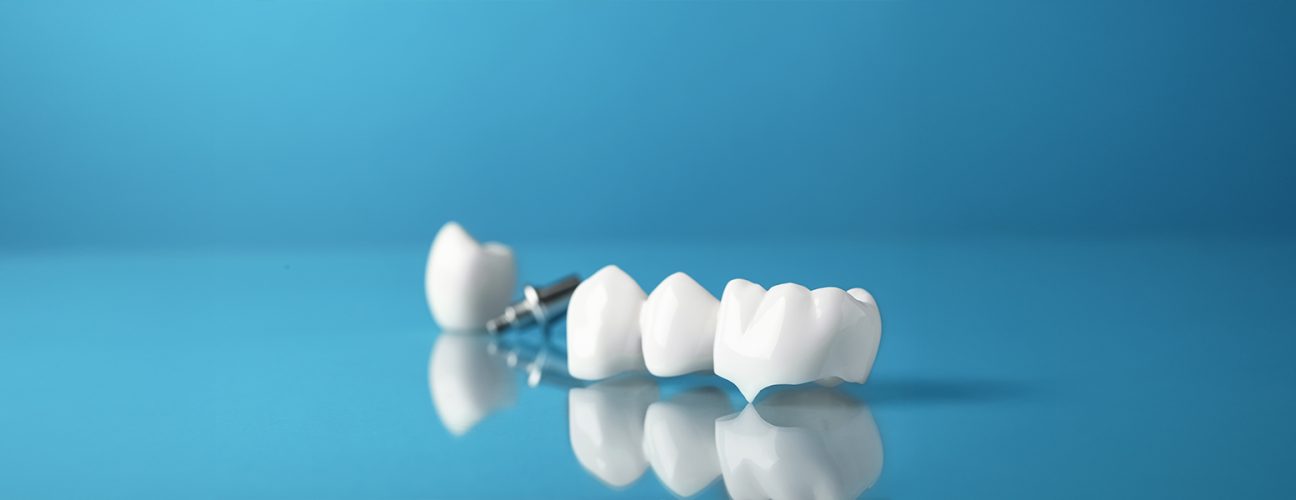Call Today
972-227-1800Pain Free Root Canals
How to Alleviate Pain from a Temporary Crown Until Your Next Appointment
November 1, 2025If you’ve ever wondered how to relieve pain from a temporary crown, you’re not alone. Temporary crowns perform an important role in protecting your tooth while you wait for the permanent crown to be placed. But sometimes, they can cause discomfort or even sharp pain that makes daily life frustrating. The good news is that you can manage most of this pain at home until your next dental visit.
Why Temporary Crowns Can Cause Pain
Temporary crowns are designed to be short-term solutions, which means they don’t always fit as snugly or feel as natural as the final crown. Pain can stem from several reasons, including:
- Tooth sensitivity – Because the temporary crown doesn’t fully insulate the tooth, hot, cold, or sweet foods may trigger discomfort.
- Biting pressure – If the crown is slightly higher than your other teeth, you may feel sharp pain when chewing.
- Irritated gums – Temporary crowns can sometimes rub against gum tissue, leaving it sore or swollen.
- Loose crown – If the crown loosens or shifts, it can expose parts of the tooth and cause sensitivity or throbbing.
If you notice swelling, severe pain, or signs of infection (like pus or fever), call a dentist near you right away instead of waiting for your next appointment.
At-Home Remedies for Pain Relief
Managing pain from a temporary crown doesn’t always require strong medications. Many times, simple home remedies can ease discomfort and keep you comfortable until your dentist can adjust or replace the crown.
Here are practical methods you can try:
- Over-the-counter pain relievers
- Ibuprofen or acetaminophen can help ease tooth and gum pain. Always follow the instructions on the label.
- Saltwater rinse
- Mix salt (1/2 teaspoon) in 1 glass of warm water and swish for 30 seconds. This reduces gum irritation and helps prevent bacterial buildup.
- Cold compress
- Put an ice pack wrapped inside a cloth to the outside of your cheek for 10–15 minutes at a time to reduce swelling.
- Avoid trigger foods
- Stay away from sticky, chewy, or very hot and cold foods. These can worsen tooth sensitivity and may even dislodge the crown.
- Clove oil application
- Dab a slight amount of clove oil on a cotton ball and lightly put it to the sore area. It’s a natural way to numb the pain temporarily.
These remedies aren’t long-term fixes, but they can keep you comfortable until your dentist can see you.
Tips to Protect Your Temporary Crown Until Your Appointment
Relieving pain is only half the battle. Protecting the crown from further damage can save you from a dental emergency and prevent added pain.
Here are smart ways to safeguard your crown:
- Chew carefully
- Use the opposite side of your mouth for chewing. This reduces pressure on the temporary crown and lowers the risk of it coming loose.
- Maintain good oral hygiene
- Brush gently around the crown and floss carefully. Instead of pulling floss upward, slide it out from the side to avoid dislodging the crown.
- Skip hard and sticky foods
- Caramels, nuts, and hard candies can pull the crown off or cause cracks. Stick with softer options until your next visit.
- Use dental wax if needed
- If the crown feels sharp or irritates your tongue or gums, a little dental wax can cover the edge until your dentist adjusts it.
- Keep the area clean
- Even though it’s temporary, treat your crown like a permanent tooth. Plaque buildup can cause gum problems and make the crown even more uncomfortable.
If the pain continues even after following these steps, schedule an exam for dental crowns in Lancaster, TX (if you are from the area), to ensure the tooth beneath is healthy and ready for its permanent crown.
Quick Reads for Extra Relief
- What if the crown falls off?
- Don’t panic. Save the crown in a clean container and call your dentist. Sometimes, it can be re-cemented until the permanent one arrives.
- Why does my bite feel uneven?
- Temporary crowns may sit a little high. Your dentist can adjust them quickly during a visit.
- Can I sleep with pain?
- Yes, but elevate your head with an extra pillow. This reduces blood flow to the sore area and eases throbbing.
- Should I use mouthwash?
- Stick with an alcohol-free rinse. Alcohol-based ones may cause more irritation around sensitive gums.
Conclusion
Pain from a temporary crown doesn’t have to take over your day. By using at-home remedies and protecting your crown carefully, you can stay comfortable until your dentist places the permanent restoration. Remember, these tips are temporary solutions, not replacements for professional care. If the pain turns worse or you notice swelling, don’t wait—reach out to your dentist right away.
Your smile deserves lasting protection and comfort, and with the right care, your transition from a temporary crown to a permanent one can be smooth and stress-free. For trusted care and lasting solutions, Royal Family Dentistry is here to help.

At Royal Family Dentistry Lancaster, Dr. Kamalpreet Shallu brings years of advanced dental training and a genuine passion for patient-centered care. With a Fellowship in Implant Dentistry, Invisalign certification, and specialized expertise in guided implant surgery, All-on-X implants, and complex extractions, Dr. Shallu is dedicated to making every patient feel comfortable & confident. Known for treating each patient like family, she combines modern dental techniques with a warm, empathetic approach to help Lancaster residents achieve healthier, lasting smiles.
Read More
